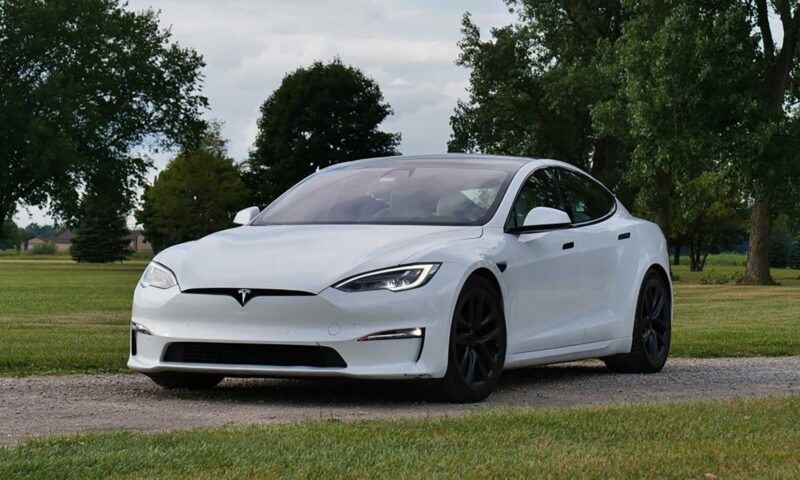In the race towards sustainable transportation, a groundbreaking development is poised to shake up the electric vehicle (EV) industry: sodium-ion batteries. As lithium prices soar and supply chain concerns grow, sodium-ion technology offers a promising alternative. Imagine a future where EVs are not only more affordable but also more sustainable. By 2025, sodium-ion batteries could revolutionize electric vehicles, bringing us one step closer to a greener planet. In this article, we will explore the potential of sodium-ion batteries, the challenges they face, and how they could transform the EV landscape.
Understanding Sodium-Ion Battery Technology
What Are Sodium-Ion Batteries?
Sodium-ion batteries are a type of rechargeable battery that uses sodium ions to create energy. While similar to lithium-ion batteries, the primary difference lies in the use of sodium, which is abundant and inexpensive, as opposed to lithium. This makes sodium-ion batteries a more sustainable and cost-effective solution for EVs.
Key Advantages:
- Abundant Resources: Sodium is the seventh most abundant element on Earth, reducing the risk of supply shortages.
- Lower Costs: Sodium-ion batteries could potentially cut battery costs by 30-50% compared to lithium-ion batteries (source: Bloomberg Green).
- Environmental Benefits: Easier recycling processes and less environmental impact during extraction.
Current Developments and Innovations
Several companies and research institutions are leading the charge in sodium-ion battery technology. For instance, CATL, a major player in the battery industry, announced a breakthrough in sodium-ion battery technology in 2021, promising improved energy density and charging speeds. Similarly, researchers at MIT are working on enhancing the performance of these batteries to compete with their lithium counterparts.
Recent Achievements:
- Energy Density: Current sodium-ion batteries can achieve about 160 Wh/kg, with projections to reach 200 Wh/kg by 2025 (source: MIT Technology Review).
- Charging Speed: Advances in electrolyte composition have led to faster charging capabilities, rivaling lithium-ion batteries.
How Sodium-Ion Batteries Could Transform the EV Industry
Cost-Effective Solutions for Manufacturers
The affordability of sodium-ion batteries could significantly reduce the costs of producing electric vehicles. This economic advantage would allow manufacturers like Tesla, Rivian, and Volkswagen to offer more competitively priced EVs, making them accessible to a wider audience.
Impact on EV Pricing:
- Reduced Battery Costs: As batteries account for a significant portion of an EV’s cost, cheaper sodium-ion batteries could lower overall vehicle prices.
- Market Penetration: More affordable EVs could accelerate market penetration, with projections estimating a 15% increase in EV adoption by 2025 (source: Reuters Mobility).
Enhancing EV Range and Performance
Sodium-ion technology is not only about cost savings. With ongoing research and development, these batteries are expected to deliver comparable, if not superior, performance to lithium-ion batteries.
Performance Improvements:
- Increased Range: As energy density improves, sodium-ion batteries could support longer driving ranges, addressing a common consumer concern.
- Temperature Resilience: Sodium-ion batteries perform better in extreme temperatures, enhancing vehicle reliability in diverse climates.
Overcoming Challenges: What Lies Ahead
Technical and Infrastructure Hurdles
Despite their promise, sodium-ion batteries face several challenges that must be addressed to realize their full potential. These include issues related to energy density, cycle life, and charging infrastructure.
Key Challenges:
- Energy Density: While improvements are underway, achieving energy densities comparable to lithium-ion batteries remains a hurdle.
- Infrastructure Development: Existing charging networks need to adapt to support sodium-ion technology.
Industry Adoption and Consumer Education
For sodium-ion batteries to gain traction, industry players must embrace innovation and invest in research. Additionally, educating consumers on the benefits and capabilities of sodium-ion batteries is crucial.
Steps for Adoption:
- Invest in R&D: Continued investment in research and development is paramount to overcoming technical limitations.
- Collaborate with Stakeholders: Partnerships between manufacturers, governments, and tech companies can accelerate infrastructure development.
- Raise Awareness: Informative campaigns can help consumers understand the advantages of sodium-ion batteries.
Practical Tips for EV Enthusiasts
How to Charge Sodium-Ion Batteries
While charging sodium-ion batteries is similar to lithium-ion, here are some tips to optimize performance:
– Use compatible chargers that support sodium-ion technology.
– Avoid extreme temperatures during charging to maintain battery health.
Where to Buy Sodium-Ion Powered EVs
As sodium-ion technology becomes mainstream, expect to see offerings from brands like BYD and Hyundai. Keep an eye on industry announcements and product launches.
What to Compare When Choosing an EV
When considering an EV with sodium-ion batteries, evaluate:
– Battery Life: Compare cycle life and warranty offerings.
– Charging Infrastructure: Ensure accessibility to compatible charging stations.
– Vehicle Range: Assess the driving range and efficiency.
Conclusion: A Future Powered by Sodium-Ion
In conclusion, sodium-ion batteries hold the potential to revolutionize the electric vehicle industry by 2025. With their cost-effectiveness, sustainability, and improving performance, they could drive a new era of accessible and environmentally friendly transportation. As we look to the future, it’s clear that sodium-ion technology could be a game-changer in the quest for sustainable mobility. Are you ready to embrace this exciting development? Share your thoughts and join the conversation about the future of electric vehicles!
As we move forward, staying informed about advancements in battery technology and clean energy will be crucial. Sodium-ion batteries may soon power the next generation of vehicles, paving the way for a cleaner, greener world.

